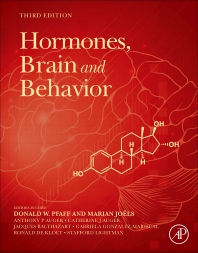Books in Neuroendocrinology
Books in Neuroendocrinology

The Orexin/Hypocretin System
Functional Roles and Therapeutic Potential- 1st Edition
- Jim R. Fadel + 1 more
- English

Stress and Epigenetics in Suicide
- 1st Edition
- Vsevolod Rozanov
- English

Stress: Neuroendocrinology and Neurobiology
Handbook of Stress Series, Volume 2- 1st Edition
- George Fink
- English

Hormones, Brain and Behavior
- 3rd Edition
- Donald W. Pfaff + 1 more
- English

Stress: Concepts, Cognition, Emotion, and Behavior
Handbook of Stress Series, Volume 1- 1st Edition
- George Fink
- English

Sex Differences in the Central Nervous System
- 1st Edition
- Rebecca M. Shansky
- English

Circadian Rhythms and Biological Clocks Part A
- 1st Edition
- Volume 551
- English

Clinical Neuroendocrinology
- 1st Edition
- Volume 124
- Eric Fliers + 2 more
- English

Pulsatility in Neuroendocrine Systems
- 1st Edition
- Volume 20
- P. Michael Conn + 1 more
- English

Encyclopedia of Sleep
- 1st Edition
- Clete Kushida
- English